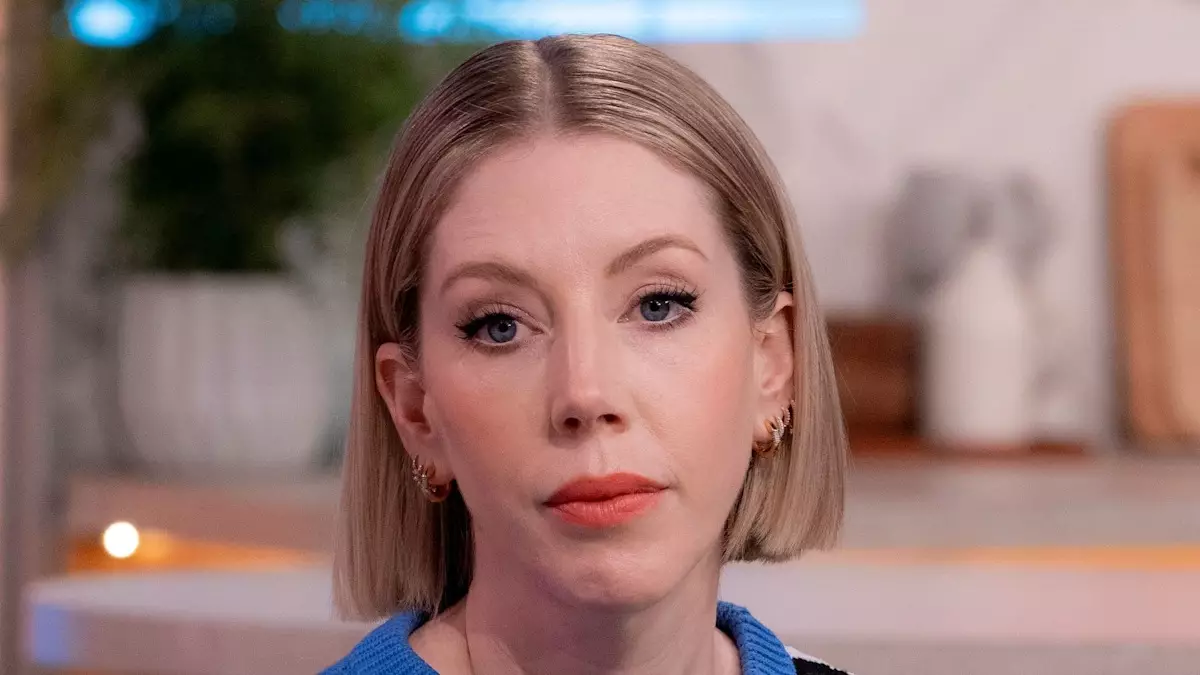Katherine Ryan, the candid and witty comedian, has once again found herself in the fighting ring against cancer, this time after an alarming suspicion regarding a mole on her arm. The revelation came during her appearance on the “Telling Everybody Everything” podcast, where she shared the harrowing details of her journey from suspicion to diagnosis. What makes her experience particularly poignant is not only the nature of the disease but the challenge she faced with healthcare systems in seeking validation for her concerns.
Many individuals would likely dismiss the idea of needing a second opinion, especially when given the reassuring words of professionals. However, Ryan’s account serves as a vital reminder that our intuition should never be disregarded. Despite multiple consultations, including a rather dismissive visit to an NHS doctor, she maintained a steadfast resolve to pursue the truth—her health depended on it. This relentless quest for answers showcases her bravery, urging others to advocate for their wellbeing.
Healthcare’s Shortcomings: A Personal Narrative
Ryan’s story sadly reflects a larger issue within the healthcare system, both public and private. After initially being turned away by both the NHS and a private clinic, Katherine took matters into her own hands, eventually seeking treatment at a high-priced clinic in South Kensington. Rather than it being a matter of principle, Ryan’s experience exposes a troubling truth: had she not opted for private healthcare, her situation might have gone unchecked, creating a very different narrative.
She recounted how her consultations, even in a private setting, were brief and lacked sufficient depth, raising questions about the quality of patient care. This begs the question: how many others are affected by similar experiences in our healthcare systems? Are we, as a collective, relying too heavily on a system that may inadvertently undermine the concerns of patients who are genuinely at risk? Ryan’s story intersects with critical discussions about the accessibility and attentiveness of medical care in modern society, particularly concerning conditions like melanoma.
The Personal Impact of Melanoma Awareness
Ryan’s battle with melanoma is undoubtedly personal, but it’s also a broader reminder about the increased incidence rates of skin cancer, including melanoma. With statistics showing that around 16,700 people are diagnosed with melanoma each year in the UK alone, there’s a pressing need for increased awareness about skin health. The comedian’s powerful message via TikTok encourages everyone to pay close attention to their skin—a message particularly vital in a society where sun exposure is often taken for granted.
Melanoma’s insidious nature cannot be overstated; it thrives on neglect, often masquerading as benign skin marks. Katherine’s own experiences serve as a wake-up call, not just for her fans but for everyone who has a mole or blemish that may warrant closer inspection. Her message is clear: be proactive, be vigilant, and do not hesitate to seek the necessary treatment, even if it means pushing for more than just a cursory look.
A Call for Empowerment and Change
Ryan’s poignant narrative demonstrates that our health journeys intertwine deeply with our responsibility as advocates for ourselves. The stark reality she faced while grappling with dismissive attitudes from medical professionals is a call to action for all healthcare stakeholders: we must cultivate a system that champions patient voices rather than silencing them. This narrative becomes particularly significant when we recognize that early detection can be the difference between life and death in cases of melanoma.
In the wake of Katherine’s public diagnosis, it’s essential for society to embrace an empowered outlook towards health. Individuals should feel not just allowed, but compelled to question suggestions of normalcy from healthcare providers, insist on comprehensive evaluations, and seek further opinions if something feels amiss. She encourages individuals to photograph moles and track changes as part of their routine health monitoring—an initiative that could save countless lives if taken seriously.
The Power of Sharing Stories
Katherine Ryan’s experience not only sheds light on the personal journey one goes through with cancer but also illustrates the broader implications for public health awareness. Sharing her story has the potential to resonate with many who find themselves in similar situations or have been hesitant about the signs their bodies exhibit. The simple act of discussing her experience candidly creates a space for others to reflect on their health and well-being.
In a world often filled with daunting statistics and abstract data, real stories like Ryan’s serve as the crucial human element that inspires change, awareness, and perhaps even transformative action within healthcare. By leveraging her platform, Katherine not only raises awareness about melanoma but also fosters a culture of vigilance and self-advocacy—reminding everyone that health is paramount and vigilance is essential in safeguarding it.

